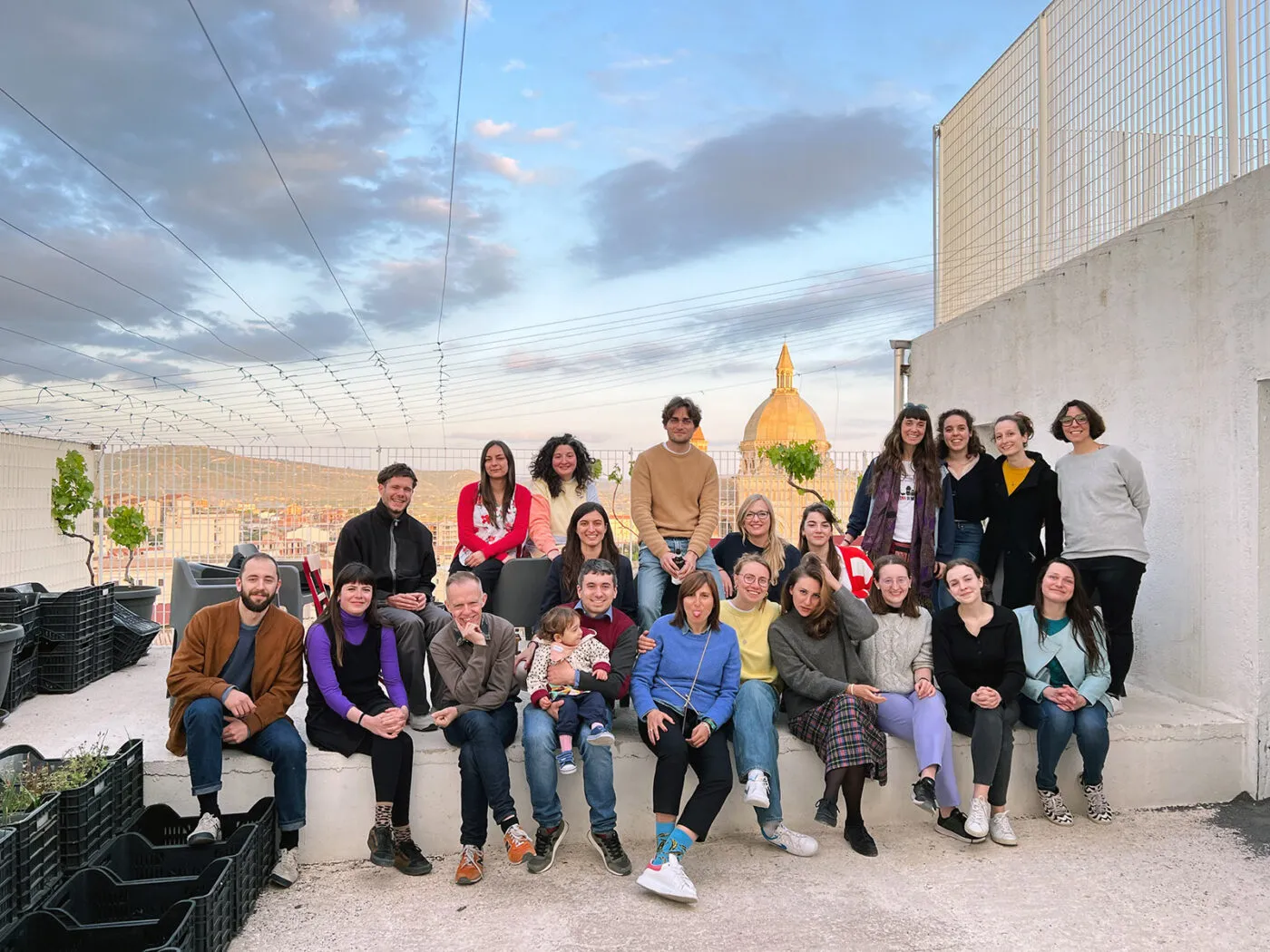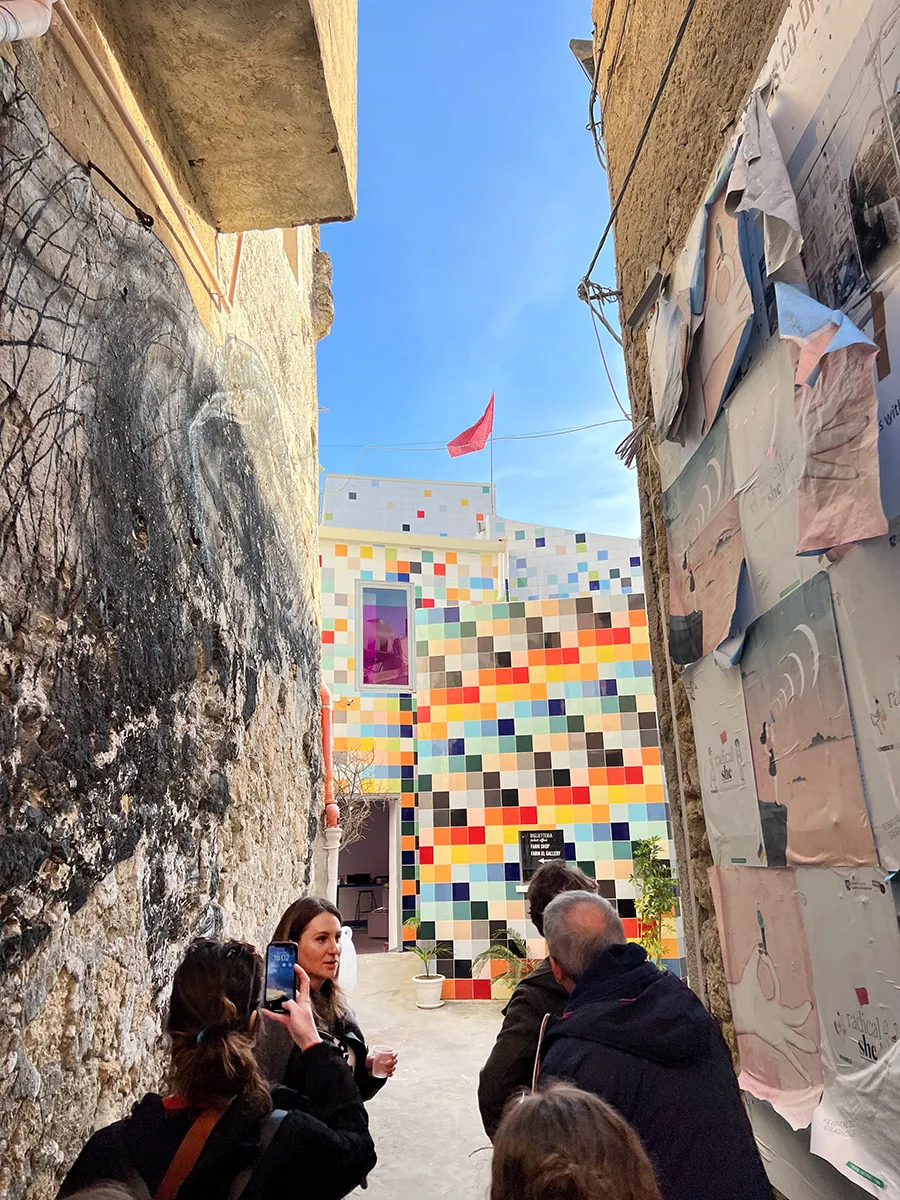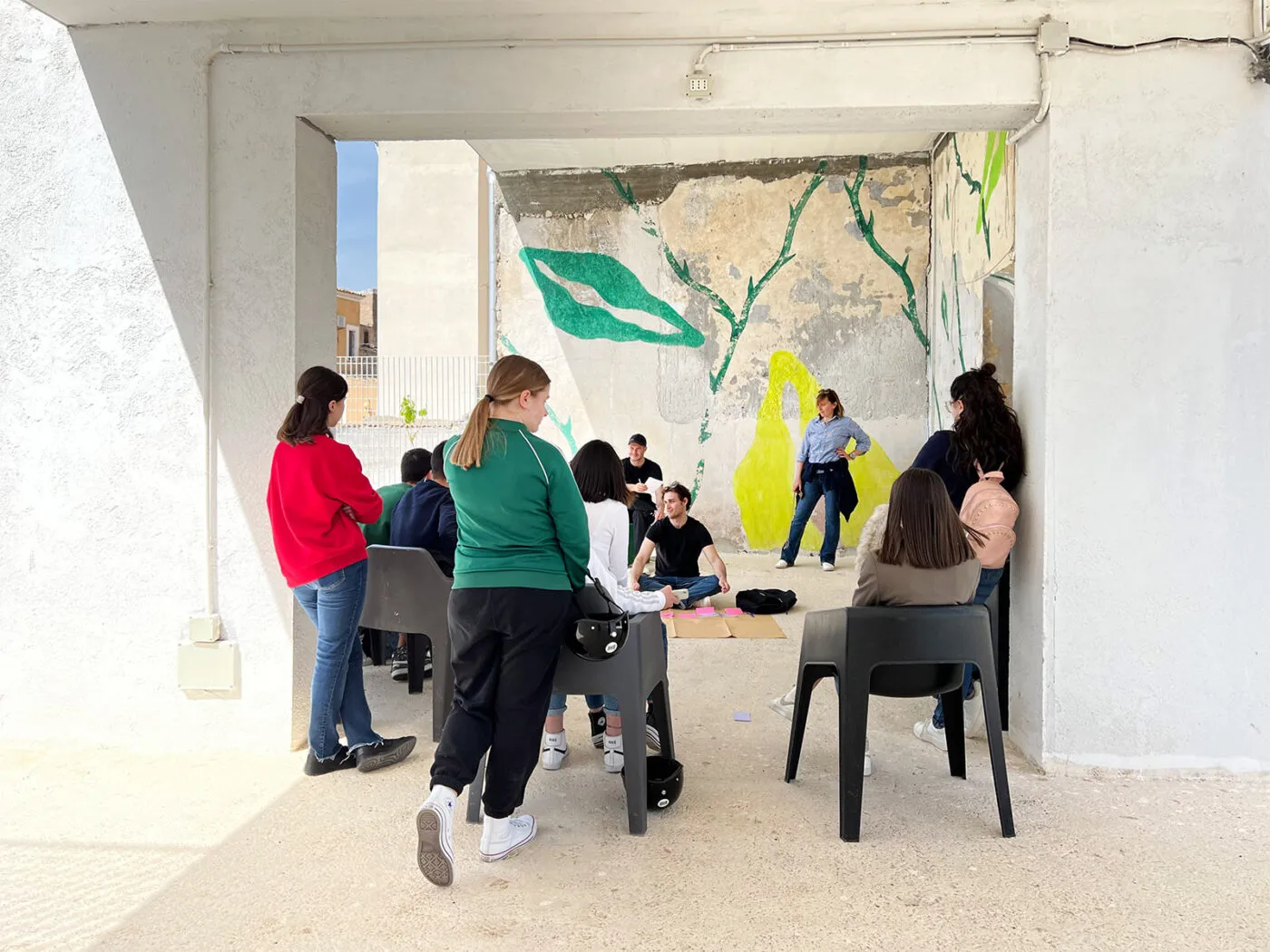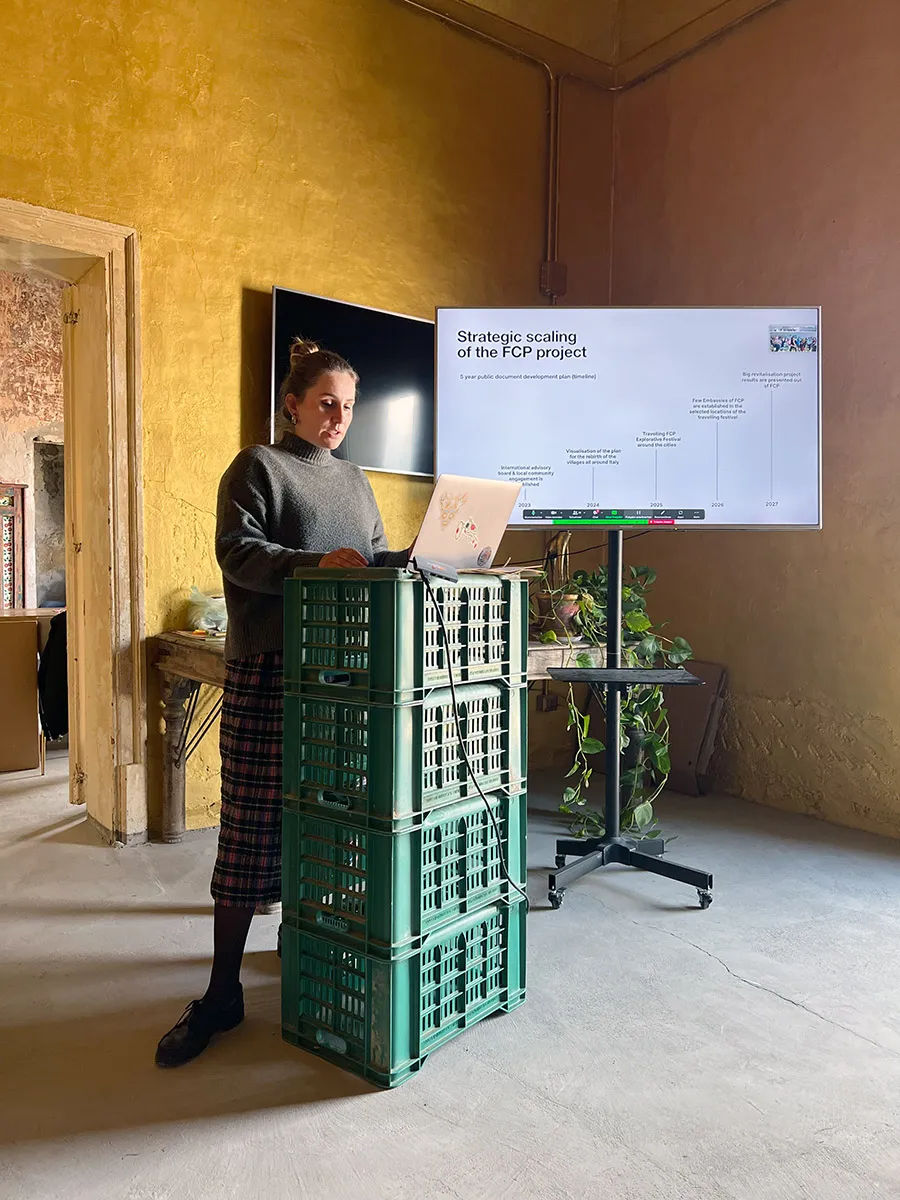Small Town, Big Dreams
Reimagining the Visitor Experience
at Farm Cultural Park in Favara

An unexpected welcome
On April 10, 2023, a diverse group of HSLU MA Design students arrived at Mazzarino, Sicily, for this spring’s connect project. All we knew about our task was that we would work with a local cultural institution, Farm Cultural Park (FCP), to increase their audience engagement and make them more attractive to tourists and youth.
Our first impression of Mazzarino was of a small but quaint place, the town’s main street peppered with old but charming buildings. By nighttime, though, we would be surprised by the exceptional hospitality that FCP founder Andrea Bartoli received us with. It was his birthday, and we were invited to his party to mingle with the guests, tour FCP’s picturesque embassy, and enjoy delicious food. The day after, we were properly introduced to FCP by visiting Mazzarino’s exhibition rooms, and had the chance to discuss the scope of the project and Andrea’s expectations of us.
Before moving on to Favara, the group took the opportunity to visit Palazzo Alberti, a wonderfully decadent villa which had been abandoned for the last fifty years and gone into disrepair – now uninhabited except for some birds who had made it their home. The fading frescoes, peeling wallpaper, and beautiful, ruined furniture gave us a glimpse into one of the main problems we would find later on in Favara: the scarcity of tourists in the area is not due to a lack of beauty or interesting landmarks, but rather to the general state of disrepair many of the buildings are in, which sees them being closed off to the public and unvisitable.
We moved on to the city the project would focus on: Favara. We had been warned of the state of the town beforehand, but were still surprised by what we found: the streets were narrow and dirty, many of the buildings half- demolished, and several of the local stores closed permanently. Suddenly, what we had heard about FCP’s mission of metaphorically and literally rebuilding the city of Favara to give it life again made sense.
When the design team entered Favara’s FCP one day later, it was like witnessing a portal to a different world. The contrast of the neighbourhood with the rest of the city was obvious: renovated, modern buildings, vibrant colours everywhere, contemporary art by international artists. The Palazzo Miccichè, where we would be working for the next days, was equally impressive, with its lavish, ancient interiors and modern furniture. Now, having been properly introduced to the FCP and Favara, we could start working on the project.

To work!
The first week was dedicated to the research and laying out the groundwork for an intervention: we started with a large number of interviews, which included local stakeholders like tourism experts, journalists, and hoteliers, but also observing visitors’ behaviour and experience in the exhibitions of FCP. These days did not come without surprises, such as the arrival of sixty local gymnasium students for whom we organised ideation workshops in order to understand their needs and what kind of experience would attract them and enable them to spend time at FCP. Parallel to the interviews and workshops, a group of design students focused on researching FCP’s social media presence along with their website, to analyse the opportunities to improve a visitor’s digital experience prior to their visit.

Only thanks to these many possibilities to observe and research visitors’ and young people’s experiences with FCP could we create an accurate issue map of the problems faced by the organisation and the opportunities for intervention that we could make use of. Of the issues that emerged, we chose a subset that we could realistically work on in the remaining week: improving the visitors’ physical and digital experience, and better connecting with the younger generation to inspire them to learn and improve their future.
With a clear set of goals, we immediately set out to work on prototypes.
For the visitors’ physical experience, a group of students ideated potential solutions that would make a tourists’ journey through FCP more enjoyable and accessible: the goals were to add an element of interaction with the exhibition and artworks, create a clear information system in the exhibitions and orientation within the centre, and unify the different pavilions under a common theme. Come the time for prototyping, this resulted in a concept for a new signalisation system: upon arriving, the visitor would be guided through the exhibition by a plant painted on the walls and floor, which would, with its leaves, offer information on the artwork, pose questions that the visitor could answer on the spot, and signalise with a colour code where all the different pavillons and facilities are. In line with the FCP’s image of an organic, growing organisation, this concept would also solve many of the issues we identified in the visitors’ physical journey.
Another group was responsible for reimagining some of the FCP’s spaces as more attractive to the younger generation and combining their wishes with the existing rooms. Using the insights gained in the workshops of the week before, this team created a set of illustrations of how existing rooms could be changed to accommodate the teenagers’ preferences, along with a set of activities and regulations that would enable them to use the FCP as a space for learning and sharing.
In the meantime, the team responsible for the digital experience analysed the website architecture of FCP and reorganised it to be clearer, reviewed and recreated the branding of the organisation, and proposed a new system for teenagers to apply to open calls and competitions directed to them.
Output
At the end of the second week, and after four days of intense work, the team was finally ready to present. The results of the research, ideas, and prototypes were shown, and lastly, the group proposed a set of strategic steps for FCP to take to increase their audience in the more distant future: these included proposals such an international advisory board, events extending to surrounding towns, and the establishment of embassies of FCP.

Having finished what we set out to do, we finally concluded the day with an aperitivo on the terrace of Palazzo Miccichè. On Saturday the 22nd, we departed from Favara with a new appreciation for each other and our work together, happy to have had the opportunity to work on such a complex and challenging project. All in all, what the team achieved in the span of two short weeks was impressive: a clear understanding of our client’s needs and the context, as well as a set of prototypes and strategic proposals. Nevertheless, we left with the impression that we could have worked on the project for a month, using our first two weeks as a basis for a more complex design intervention.
Perhaps, in the future our paths will cross with Favara and Farm Cultural Park again; until then, goodbye Favara. Or maybe, arrivederci and until next time!
Text: Chiara Turel
Photos: Sofiia Kaminska
ANDREA BARTOLI,
You have been great. A thousand thanks.